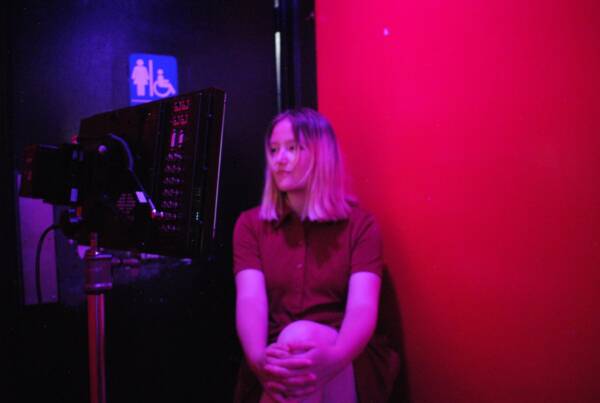Review by Freya Bennett
 I was sent Strife late last year before the release of the Binge TV series by the same name. Although I am an avid listener of the Mamamia Outloud podcast, I put off reading it because I thought it was going to be unrelatable and possibly even slightly infuriating as some of Mia Freedman’s faux pas and opinions have been.
I was sent Strife late last year before the release of the Binge TV series by the same name. Although I am an avid listener of the Mamamia Outloud podcast, I put off reading it because I thought it was going to be unrelatable and possibly even slightly infuriating as some of Mia Freedman’s faux pas and opinions have been.
When listening to her podcast(s), my reactions often oscillate between vehemently disagreeing with some of Mia’s feminist perspectives while wholeheartedly agreeing with others. And being in the throes of late pregnancy, I had no inclination to engage in a mental debate about feminism with an imagined Mia Freedman.
Merely a month later, completely submerged in the demands of newborn life, I found myself tethered to a breast pump around the clock, grappling with a low milk supply. I needed distraction and the first thing I binged was Strife. From the first episode, I was hooked. Although the character of Evelyn Jones is only inspired by Mia Freedman, they cleverly touched on Mia’s past cancellations and gave humanity to her mistakes. After completing the series in a matter of days, I finally picked up the book.
Strife (previously titled Work, Strife, Balance), proves to be an unexpectedly deep and balanced exploration of her life. Having previously dismissed Mia’s feminism due to occasional missteps and the perceived ‘fluffiness’ of her platform Mamamia, I found myself enthralled by her story and aligning with many of her stories (hello fellow health anxiety sufferer). Her chapter on botox, choice and feminism was *chef’s kiss* and she’s put into words how I’ve felt about this topic for a long time.
I’ve surprised myself as I’ve matured into my 30’s that I align much more with Mia Freedman than other prominent Australian feminists. Where I once felt strongly aligned with a certain Melbourne feminist who shall remain nameless, I’ve realised the maturity it takes to embrace change and own up to past mistakes cannot be dismissed. Mia frequently expresses her appreciation for having her opinions challenged, and it’s truly refreshing to witness her open-mindedness and willingness to evolve during her live podcast discussions. Mia’s approach is refreshingly devoid of anger and rage, offering a different dimension to contemporary feminist discourse. Of course this is not to say that anger and rage don’t have their place in feminism, of course they do, but rage for the sake of rage is not helpful.
Mia’s writing is a testament to her intelligence, humor, and warmth, inviting readers into vulnerable moments with the hope that they, too, may feel less alone. Having personally gone through a miscarriage myself, I valued Mia’s openness when sharing her own journey and am so grateful to women like her who where the first to speak openly about this once-taboo topic, paving the way for women like me to feel okay freely talking about this common but heartbreaking experience.
One of the standout aspects of the book is Mia’s take on ‘balance,’ challenging the societal double standard that rarely questions how men balance their lives. Her viewpoint provided me with a sense of relief as I attempt to navigate the complexities of being a stay at home mum while growing my business and profile. I once believed I had to achieve a perfect work life balance while maintaining constant peace, but I’ve come to realise that this is unrealistic. Life consistently presents challenges, and letting go of the notion of perfect balance has been incredibly liberating.
Another noteworthy aspect for me was Mia’s perspective on feminism and choice. I’ve always held the belief that feminism transcends individual choices. At its core, feminism is about achieving equality. If our choices don’t contribute to that goal, can they genuinely be considered feminist, and does it even matter? As women facing immense societal pressures, must all our decisions align with feminist ideals? Do we have to make every choice an ’empowered’ one or can we acknowledge that some of our choices are made through deep societal pressure? Recognising that our choices are influenced by broader factors is crucial. Consider changing your name in marriage or giving your kids your husband’s last name for example—these seemingly straightforward decisions carry a weight of history and societal expectations. Therefore, can they be deemed empowered choices when they conform to the norm?
Mia prompts us to ponder whether opting for Botox (or any other anti-ageing procedure) can be a genuinely autonomous or empowered decision when societal norms actively discourage women from embracing the natural aging process. And while she discusses this sensitive subject, she openly shares that she may very well undergo Botox treatment while knowing it’s not an empowered decision (I believe she now has and discussed it on Mamamia Outloud).
The expectations placed upon us to maintain a youthful appearance whilst simultaneously being the perfect, empowered feminist is unattainable. Embracing the realisation that certain aspects of our ‘choices’ may not align with feminist ideals, and accepting that reality, is genuinely liberating (though I still believe it’s essential for more women to reject anti-aging procedures to reshape the narrative for the next generation).
Taking a leaf out of Mia’s book (literally), I am so happy to have had my ideas challenged and am embarrassed to have been somewhat ‘snobbish’ towards Mia Freedman and Mamamia.
Strife is a compelling memoir that goes beyond the surface and I highly recommend to women of all ages.






